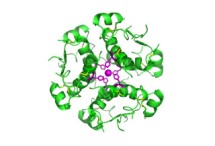A diet for insulin resistance is the most effective way to get diabetes and insulin under control. An insulin resistance diet can help combat diabetes using “smart nutrition.”
Yes, I said diabetes AND insulin. That may sound strange, because for a diabetic, insulin is a life saver. So why would insulin be something you want to get under control? Insulin, while essential to life, also shortens your life if you get too much of it!
Insulin, Good Guy or Bad Guy?
The truth about insulin is that while it is essential to life, like many things too much is almost as bad as too little. Insulin resistance means that you end up producing (or injecting) more and more insulin, because you are less and less sensitive to its effects.
Thus the diabetes gets worse and your insulin levels rise. Eventually your body loses the ability to make insulin and you become dependent on injections to get the required amount. Diet for insulin resistance is absolutely essential for stopping this vicious cycle and beginning to take your life back from diabetes.
How is this related to antiaging you might ask? Simple, the higher your insulin levels throughout your life, the shorter your life will be, and the more pain and chronic disease you will have. Remember that diabetes and insulin feed off of one another.
You don’t have to be classified as a “diabetic” to be concerned about your insulin levels and keeping them as low as you can, by maximizing your insulin sensitivity with an insulin resistance diet and appropriate exercise.
Diet for Insulin Resistance
How do we eat in order to keep insulin and diabetes under control?
In simple terms we are talking about a diet that’s relatively low in carbohydrates (especially grains, which you should probably avoid altogether).
Grains cause insulin to rise because they break down into sugar. Whole grains are a bit better in this respect, but even whole grains can be a problem to someone who has problems with blood sugar.
We are really talking about a diet high in protein, moderate in fat, and low in carbs. This will work for about 75% of the population who’s genetic lineage can be traced back to the hunter/gatherers with blood type “O” and “B.”
This is sometime called the Paleo Diet, or Caveman Diet, but the principle is the same, it’s based on lean meats, foul, fish, vegetables, and some beans and legumes. You go easy on starchy vegetables, again because they tend to break down into sugar more readily.
This is also called “low glycemic”eating, again because you are choosing foods that have a low glycemic index and don’t cause rapid elevations of blood sugar, which is what triggers your body to secrete lots of insulin, or necessitates taking insulin shots to lower blood sugar.
Key point: a diet for insulin resistance is one that keeps blood sugar low!
So your insulin resistance diet would look something like this:
40% protein
30% fat (good fats)
30% carbs in the form green and other non-starchy vegetables
Exercise Improves Insulin Sensitivity
Proper exercise goes a long way toward increasing insulin sensitivity thereby combating insulin resistance. This depends on what you are capable of doing for exercise. Short sessions of exercise using large muscle, and resulting in that “muscle burn” that you feel when you exercise intensely are best.
This is because muscle burns sugar when active, and maintaining as much lean muscle tissue as possible means that your blood sugar control gets much better. Also, healthy active muscle tissue becomes very sensitive to insulin’s hormonal message, and thus it takes far less insulin to metabolize the sugar in your bloodstream.
Muscle tissue when exercised intensely becomes a blood sugar “sink” absorbing sugar in your blood stream when you are active. Muscles that are inactive and don’t get exercised cannot absorb sugar as readily and so the sugar stays in your bloodstream requiring more and more insulin to metabolize it. This is the opposite of what you want.
Summary and Take Away Message
- Diet for insulin resistance
- Include foods known for helping lower blood sugar
- Exercise to improve insulin sensitivity
There are other issues that can affect insulin resistance like hormonal imbalances or sleep issues, but the diet and exercise bases can be covered with the above steps. Utilize an insulin resistance diet to control diabetes and insulin, and a longer healthier life will be yours!







